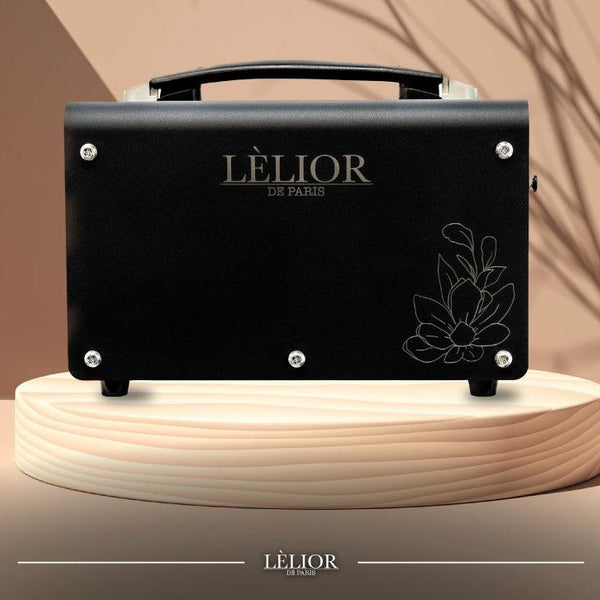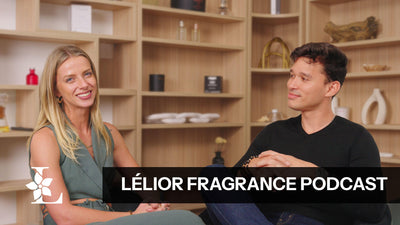Have you ever entered a store or restaurant and noticed the faint aroma of something pleasant? That scent is part of an emerging marketing technique known as "scent marketing." Scent marketing combines traditional advertising with the subtle, powerful influence of scent to increase sales and create a memorable customer experience.
With the power to boost customer loyalty and enhance brand recognition, scent marketing is fast becoming a popular option for businesses of all sizes. In this article, we'll explore the basics of scent marketing and discuss how it can help you boost your sales.
What is Scent Marketing?
Scent or aroma marketing is the use of scent to create a positive customer experience and boost sales. It relies on the idea that the human olfactory senses can trigger psychological and physiological responses. By releasing pleasant scents in an area, businesses can create an inviting atmosphere that encourages customers to stay longer, return more often, and purchase more products or services.
Scent marketing also works to imprint memories that link the company name with a positive scent. This connection can help build strong customer loyalty, as customers associate the pleasant smell with the brand and become more likely to purchase from them in the future.
Research has found that scent marketing can be effective when used in combination with other forms of marketing. According to a survey conducted by the International Journal of Marketing Studies, 400 consumers expressed more positive opinions about Nike stores and its products after being exposed to a pleasant ambient scent. Additionally, these individuals were also more likely to shop at the store again in the future.
Scent Types
Different scent families can evoke different moods and emotions, making them valuable tools in scent marketing. Here are some examples of scent families and how they can be used to create a specific atmosphere:
- Floral Scents: Floral scents are popular in scent marketing for their calming and relaxing properties. They can create a peaceful and serene environment, which can be useful in environments like spas, yoga studios, or stores selling wellness products. Common floral scents include lavender, rose, jasmine, and chamomile.
- Citrus Scents: Citrus scents are known for their energizing and uplifting properties. They can create a fresh and invigorating atmosphere, making them ideal for environments like gyms, cafes, and stores selling products that promote an active lifestyle. Common citrus scents include lemon, orange, and grapefruit.
- Woody Scents: Woody scents are warm and earthy, making them perfect for creating a cozy and comforting atmosphere. They can be used in environments like coffee shops, bookstores, or stores selling home decor items. Common woody scents include sandalwood, cedarwood, and patchouli.
- Spicy Scents: Spicy scents are known for their stimulating and invigorating properties. They can create a lively and exciting atmosphere, which can be useful in environments like bars, restaurants, or stores selling gourmet food items. Common spicy scents include cinnamon, clove, and ginger.
- Fruity Scents: Fruity scents are fresh and sweet, making them ideal for creating a fun and playful atmosphere. They can be used in environments like ice cream shops, candy stores, or stores selling children's toys. Common fruity scents include strawberry, peach, and apple.

How Scent Marketing Works
The sense of smell has a powerful impact on emotions and behavior. When we smell something, it can trigger memories, evoke emotions, and even affect our mood. This is why scent marketing is a valuable tool for businesses to enhance their customer experience and drive sales.
-
Emotional Response to Scent
Behavioral studies have demonstrated that olfactory cues can create more evocative and emotionally-charged memories than other sensory stimuli. This is because smell's connection to the limbic system - responsible for instinctive and emotional responses - makes it especially powerful in memory formation.
The right scent can create a sense of comfort and well-being, which can make customers feel more relaxed and receptive to marketing messages. It can also increase their enthusiasm for buying products or engaging with services.
-
Cognitive Response to Scent
Mounting evidence shows that there could be a substantial connection between smell and brain activity. When someone smells something, it triggers a reaction in their olfactory and cognitive systems as well; this leads to the modification of neural cells by breathing, as well as the synchronization of various networks around beta frequencies in many regions of their brain. This, in turn, can lead to improved cognitive performance and enhanced recall of information.
-
Physiological Response to Scent
Olfactory cues can also have a direct effect on the body, altering its physiological state. Many studies have suggested that the olfactory stimulation of fragrances produces immediate changes in physiological parameters such as blood pressure, muscle tension, pupil dilation, skin temperature, pulse rate, and brain activity. One way to utilize this physiological response is by using certain scents to reduce stress and anxiety in customers.
Benefits of Scent Marketing
So far, we've looked at how scent marketing can impact customer behavior. Now, let's take a look at the benefits of incorporating this strategy into your business:

-
Improve Brand Recognition
Brand experience simply means the complete set of impressions, values, and emotions a customer gets when they interact with your brand. Scent marketing can be a powerful tool for businesses to differentiate themselves from their competitors. By creating unique and memorable scents that are associated with the brand, customers can quickly distinguish one business from another. Once customers have become familiar with the scent, it will help them to remember and recognize the brand in the future.
-
Create a Memorable Experience
As we discussed earlier, scent has the power to trigger emotions and memories in customers. This can be harnessed to elicit positive emotional responses when customers interact with your brand. For example, if you run a restaurant or cafe, you could use the smell of fresh coffee or delicious food to create an inviting atmosphere that will make customers feel comfortable and welcome. This could result in a more enjoyable experience for them and make them more likely to return again in the future.
-
Increase Customer Engagement + Boost Sales
Finally, using scent marketing can boost brand sales as it creates a pleasant environment that encourages customers to make purchases. It also helps customers to access information faster and retain it better, which can be beneficial for businesses that rely on marketing materials to promote their products. Additionally, scent can increase customer spending as it has been shown to directly influence people's mood and behavior, making them more likely to make impulse purchases.

Successful Scent Marketing Examples Across Different Industries
Various industries across the world have successfully implemented scent marketing as a part of their marketing strategy. Below, we have listed a few scent marketing examples across different industries.

-
Scent Marketing for Hotels
Scent marketing for hotels has been shown to improve customer satisfaction and encourage guests to return in the future. Hotels can use scent marketing to create a calming, home-like atmosphere for their guests. The warm, inviting scents of freshly baked cookies and clean laundry are often used to make customers feel welcome and relaxed in the hotel environment.
For decades, luxurious hotel chains like Westin, Ritz-Carlton, and Shangri-La have been using scent as a strategic marketing mechanism in their lobbies, gyms, and meeting rooms. This helps to create an unforgettable experience for customers that will be recognized when they visit again in the future - all thanks to the power of smell!
-
Scent Marketing for Retail Stores
Scent marketing statistics show that using scents in your store can dramatically boost retail store sales by 11%, as well as enhance customer satisfaction scores by a remarkable 20%. This is because the fragrances used by retailers create a pleasant atmosphere that encourages people to stay in the store for longer and explore more products.
One example of retail scent marketing done right is Bloomingdale's. The fashion brand is renowned for its scents, which are tailored to the varying sections in its stores. For instance, swimwear has a soothing coconut scent while lingerie evokes sweet lilac, and infant wear provides a delicate powdery odor.
Bloomingdale's fragrances are light and distinctive, perfectly tailored to reflect its brand image. When you enter a room, it is almost undetectable, but the pleasant memories remain long after your departure.
-
Scent Marketing for Restaurants
The smell of freshly baked bread and succulent steak can be an effective way for restaurants to attract customers and make them hungry for more. Scent marketing for restaurants should be centered around the type of cuisine they serve, as this can help customers to make an immediate connection with the food. This tactic is used by many popular restaurants, from fast-food chains to fine-dining establishments.
Examples of restaurant chains that rely on this marketing method include Starbucks and Cinnabon. Cinnabon strategically selects locations for its stores where scents get trapped so that the smell of its fresh cinnamon rolls can linger. While Starbucks often pumps out its signature coffee scent to create an inviting atmosphere.
By using scent marketing solutions, restaurants not only improve the customer experience by evoking pleasant memories, they also attract additional customers to their establishments.
-
Scent Marketing in Health Care
You might be wondering, "Why use scent marketing in healthcare?" The answer is simple: the right scents can reduce stress and create a more calming atmosphere for patients. Ambient scent systems in hospitals help create a pleasant and comforting atmosphere, which can significantly improve patient satisfaction. These scents can also help improve perceptions of service quality, cleanliness, and personal wellness.
Top Scent Marketing Diffusers
Experience the power of these scent marketing solutions and transform your space into a fragrant paradise with our top-rated scent marketing diffusers.
- Le Hugo: Say hello to the Le Hugo, the ultimate scent marketing solution to fresh, clean air in large spaces. This powerful HVAC cold air diffuser covers up to 10000 square feet, making it perfect for large rooms, halls, and commercial buildings.
- Le Voltaire: Experience the ultimate in aromatherapy with Le Voltaire, a versatile diffuser that can be used as both a powerful cold air HVAC diffuser and a standard desktop diffuser, covering up to 6500 square feet.
- Le Antoinette: Introducing La Antoinette, a powerful cold air HVAC diffuser that can also be used as a standard desktop diffuser, covering up to 4500 square feet. Whether you're looking to add a refreshing aroma to your home or office, this diffuser has got you covered.
- La Piaf: A favorite by many users, La Piaf diffuser is the ultimate solution for enjoying the benefits of aromatherapy in large spaces. This powerful diffuser is designed to cover an impressive 5000 sq ft of space with its advanced cold air diffusion technology.
- Le Moliere: is a versatile cold air diffuser suitable for both residential and commercial spaces. Covering up to 2,500 square feet, it can be used as a standard diffuser or an HVAC cold air diffuser, offering flexibility in scent marketing applications.
How to Successfully Implement Scent Marketing Solutions
To successfully incorporate scent marketing into your business, here are some tips to keep in mind:
1. Defining Your Goals
It is important to define clear goals for your scent branding and marketing strategy in order to maximize its effectiveness and ensure that it is aligned with the overall objectives of your business. The goals should be specific and achievable, such as enhancing the brand experience or increasing sales. Achievable goals are essential for ensuring that your scent marketing initiative is efficient and cost-effective.
When it comes to determining the most effective scent for achieving marketing goals, there are several factors to consider. Firstly, the scent should be associated with the brand and reflect its values – this will help customers immediately recognize the brand and create positive emotional associations. For example, a spa may choose to incorporate lavender into its scent marketing strategy, as this scent is associated with relaxation and tranquility. Also, consider experimenting with different scents to see which one works best with the type of customers you are trying to target.
2. Understanding Your Target Audience
Your target audience should also play a major role when choosing the scent for your marketing strategy. Different scents will evoke different reactions, so it is important to understand how your customers may respond to certain smells. For example, if you are targeting younger audiences, consider incorporating more 'fun' and fruity scents into your strategy, as these can be attractive to this demographic.
Market research can also be beneficial for determining which scents are more likely to draw in customers. Surveys, focus groups, and interviews can provide insights into what type of scent your customers may prefer, as well as how they perceive the brand overall.
3. Choosing the Right Scent Delivery System
A scent delivery system is simply a method for dispersing the scent in the desired area. For example, diffusers are a popular option as they can be used to spread the scent evenly throughout a space. Additionally, candles and incense sticks are often used in smaller areas such as retail stores and restaurants.
When selecting a delivery system, it is important to consider how much control you need over the intensity of the scent as well as how much maintenance it requires. Other factors to consider include pricing, ease of installation, and the size of the space that needs to be scented.
If you're in the market for a scent delivery system, check us out! Leilor offers some of the best scent delivery systems on the market, and they are perfect for businesses looking to create an inviting atmosphere.
4. Consistent Delivery
Once you've gotten a great scent delivery system, you want to make sure that it is delivering the scent consistently. This will help ensure that your customers are getting a consistent brand experience each and every time they enter your business.
Additionally, tracking how often scents need to be changed or refilled can help to maximize the effectiveness of scent branding. If a particular scent's effects start to wear off, it can be replaced with a fresh scent that will reinvigorate the atmosphere and draw in new customers.
You can train staff to be aware of when scents need to be replaced, or you can install a system that automatically refills the scent when it gets low.
5. Measuring Success
One of the best ways to measure the success of a scent marketing initiative is to track customer feedback. Knowing how customers feel about your brand and its associated scent can provide valuable insights into whether or not the strategy is working. Gathering direct feedback from customers, either through surveys or in-person conversations, can be a great way to determine if they are associating your brand with the scent.
Other metrics that can be used to measure success include tracking sales, customer loyalty, and overall brand recognition. By tracking how these indicators change over time, you can determine which scents are having a positive impact on customers and ultimately make any necessary changes or adjustments.
Frequently Asked Questions
What Are The Types Of Scent Marketing?
There are four main types of scent marketing: aroma billboard, thematic, ambient, and signature smells. Aroma billboard scents are those that appeal to a wide range of customers and can be used in multiple locations. Thematic scents emphasize certain emotions or events. Ambient scents are those that provide a pleasant background scent, and signature scents are unique to each business and help customers to recognize the brand.
What is an example of scent marketing?
What businesses use scent marketing?
Various businesses utilize scent marketing to enhance their brand experience. This includes hotels, resorts, casinos, retail stores, shopping malls, spas, fitness centers, car dealerships, restaurants, coffee shops, and even hospitals. Scent marketing is widely adopted across industries to create a distinctive and memorable ambiance for customers.
What Are The Best Scents For Retail Stores?
The best scents for retail stores will depend on the type of store and the products being sold. For example, a boutique may want to use a more sophisticated scent, such as jasmine or sandalwood, while a toy store may want to choose something that is more playful, such as cinnamon or citrus.
Conclusion
Scent marketing can be a powerful tool for businesses looking to create a memorable experience and attract new customers. However, scent marketing is not something that should be done haphazardly - it requires careful consideration of the environment, target audience, delivery system, and measure of success. With the right approach, businesses can capitalize on the power of scent to create an impactful and memorable experience for their customers.
Get The Right Scent Machine Business For Business Purposes
Enhance your business with irresistible luxury fragrances from Lelior. Experience the power of scent with top-of-the-line diffusers, fragrance oils, room sprays, and more. Our hand-made products are paraben-free, cruelty-free, and made of all natural ingredients. If you have any questions regarding finding the right scent or scent system, feel free to write to us at concierge@lelior.com.









